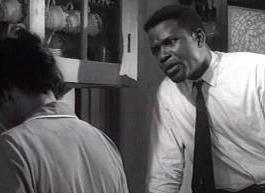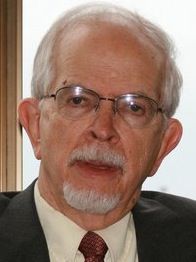“What happens to a dream deferred?”
 Injustices, that is, such as Israel’s oppressive military occupation of the Palestinian people, an occupation that began either in 1948 or 1967, however one wishes to measure the history of stolen land and stolen lives.
Injustices, that is, such as Israel’s oppressive military occupation of the Palestinian people, an occupation that began either in 1948 or 1967, however one wishes to measure the history of stolen land and stolen lives.
Dr. James Wall Global News Centre
(CHICAGO) What happens to a dream deferred?
The question comes from Langston Hughes’ poem, Harlem, which inspired Lorraine Hansberry to write her drama, A Raisin in the Sun, the first play written by an African American woman to be produced on Broadway.
Her play was made into a 1961 movie which featured Sidney Poitier (above), as Walter Lee, the angry and ambitious son of a mother trying to give her family a safe and secure home.
Hughes’ poem, Harlem, is short and prophetic:
What happens to a dream deferred?
Does it dry up
like a raisin in the sun?
Or fester like a sore—
And then run?
Does it stink like rotten meat?
Or crust and sugar over—
like a syrupy sweet?Maybe it just sags
like a heavy load.Or does it explode?
Langston Hughes’ poem was an artistic cry of protest against racial injustice in the United States. He was addressing the increasing frustration and anger felt by African Americans whose dream of equality was continually being deferred.
Langston Hughes (1902-1967) (right) was known to possess a “strong sense of racial pride”. It was “through his poetry, novels, plays, essays, and children’s books, [that] he promoted equality, condemned racism and injustice, and celebrated African American culture, humor, and spirituality”.
Like all great art, Hughes’ poem transcends the context of immediacy. “A dream deferred” applies wherever injustice exists.
Injustices, that is, such as Israel’s oppressive military occupation of the Palestinian people, an occupation that began either in 1948 or 1967, however one wishes to measure the history of stolen land and stolen lives.
Religious institutions have been notoriously slow in responding to that occupation, preferring instead to concentrate narrowly on their own institutional house keeping and growth.
In so doing, these institutions have followed the same plan of deferral practiced by an early generation that tolerated and encouraged racial segregation in U.S. life.
That deferral began to change when Palestinian Christians challenged these churches to denounce and attack Israel’s occupation with the non violent campaign, Boycott, Divestment and Sanctions (BDS).
BDS began with a call by Palestinian civil society to pursue the same sort of non violent action that earlier worked in the US civil rights movement, and in the anti-apartheid movement in South Africa.
Some critics have objected (in good deferral style) to lumping BDS into a single assignment. Never mind about that, individuals, institutions and nations can all boycott and divest. Sanctions are the tactic of nations against nations (e.g. Russia and Iran).
The important thing to remember for those who want a way to fight back, non-violently, against an illegal, brutal occupation, is that each institution and each individual has a weapon of choice.
U.S. institutional church bodies have chosen the divestment route, debating proposals to remove church retirement and other fund investments from U.S. companies that continue to conduct business within illegally occupied Palestinian territories.
And yes, the impact of divestment on major businesses is less against the bottom line of the affected companies, and far, far more against the public image of the company and, in this instance, the state of Israel.
Is Israel worried about its public image? Is the Pope a Catholic? Just look at the desperate way in which Israel and its allies are spending big dollars to fight the BDS campaigns. Even Sheldon Adelson has gotten into the act.
Palestine’s dream of freedom has been deferred far too long. It is time now to “conquer” Israel, not on the battlefield, but in the war that hits Israel where it hurts, in the world of public opinion.
Conquer is the right word.
In the rarely heard fourth verse of the Star Spangled Banner, Francis Scott Key wrote, “Then conquer we must, when our cause it is just, and this be our motto: ‘In God is our trust.’”
Key’s poem, which became our national anthem in 1931, was written after a British flotilla attempted to capture the port of Baltimore, a battle that culminated in the bombardment of Fort McHenry throughout the night of September 13, 1814.
In that context, “conquer we must” referred to “conquer” not as the act of an established nation at war with a neighbor, but as the challenges a new nation faced.
Or, on a more personal note, the word “conquer” to my mother, meant to “rise above” a barrier, in order to overcome it. How many times did she tell me, “you can conquer this”? I lost count at age 14.
Art, like the poetry of Langston Hughes, can inform us that dreams too long deferred, will wither up like “a raisin in the sun”, or maybe simply “explode”.
Dreams are deferred by barriers, like those legal barriers established by American segregationists or by Israeli occupiers who employ periodic acts of “mowing the grass”, routine night raids into Palestinian homes, and armed checkpoints for a single purpose, to maintain the status quo for those in power.
It is time to fight against that oppression with whatever weapons we have in hand. Later this month, those three U.S. Christian denominations–United Church of Christ, Episcopalian, and Mennonite–will decide whether or not to seize the BDS weapon to fight against injustice.
When Shakespeare’s English King Henry V rallied his forces to battle against the French, he called on their pride and their dedication to God, king and country.
In Act 4, Scene 3, Henry says:
And gentlemen in England now a-bed
Shall think themselves accursed they were not here,
And hold their manhoods cheap whiles any speaks
That fought with us upon Saint Crispin’s day.
It is this same reminder that Christians in three U.S. denominations, and others who will follow, must hear: Fight against injustice or remain asleep in your beds.
Will these Christians fight injustice or will they continue to sip interfaith tea in an act that defers the dreams of Palestinian children in Gaza who have no beds in which to sleep because the Israelis have destroyed them?
http://wallwritings.me/2015/06/16/what-happens-to-a-dream-deferred/
___________________________________
 Journalism was Jim Wall’s undergraduate college major at Emory University, Atlanta, Georgia. He has earned two MA degrees, one from Emory, and one from the University of Chicago, both in religion. An ordained United Methodist clergy person; he and his wife, Mary Eleanor, are the parents of three sons, and the grandparents of four grandchildren. They live in Elmhurst, Illinois.
Journalism was Jim Wall’s undergraduate college major at Emory University, Atlanta, Georgia. He has earned two MA degrees, one from Emory, and one from the University of Chicago, both in religion. An ordained United Methodist clergy person; he and his wife, Mary Eleanor, are the parents of three sons, and the grandparents of four grandchildren. They live in Elmhurst, Illinois.
Jim served for two years on active duty in the US Air Force, and three additional years in the USAF (inactive) reserve. While serving with the Alaskan Command, he reached the rank of first lieutenant. He has worked as a sports writer for both the Atlanta Journal and Constitution, was editor of the United Methodist magazine, Christian Advocate for ten years, and editor and publisher of the Christian Century magazine for 27 years, starting in 1972. Time magazine wrote about the new editor, who arrived at the Christian Century determined to turn the magazine into a hard-hitting news publication. The inspiration for Wall Writings comes from that mindset and from many other sources that have influenced Jim’s writings over the years, including politics, cinema, media, American culture, and the political struggles in the Middle East. Jim has made more than 20 trips to that region as a journalist, during which he covered such events as Anwar Sadat’s 1977 trip to Jerusalem, and the 2006 Palestinian legislative election. He has interviewed, and written about, journalists, religious leaders, political leaders and private citizens in the region. You can write to Jim Wall at [email protected]. Visit Jim’s Website: Wall Writings



















 London
London
 Oregon
Oregon





Leave a Reply
You must be logged in to post a comment.